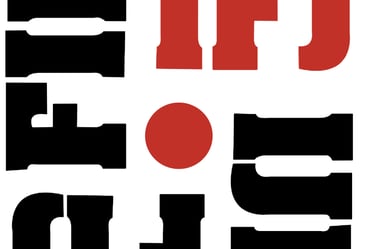The Unprecedented Scandal in African Football: 62 Players Suspended for Falsifying Identities and Ages


This scandal has not only brought disgrace to the Cameroonian Football Federation but has also raised serious concerns about the overall credibility of African football. The revelation has exposed a deep-rooted problem that has plagued the sport for years, with players resorting to such unethical practices in order to gain an advantage.
It is a well-known fact that age fraud has been a persistent issue in African football, with players often lying about their ages to appear younger and potentially secure lucrative contracts with professional clubs. This scandal, however, has taken the problem to a whole new level, with a staggering number of players involved in the deception.
The implications of this scandal are far-reaching, not only for the players who have been suspended but also for the teams and clubs they represent. The credibility of their achievements and performances is now under scrutiny, and questions are being raised about the fairness of competitions in which these players have participated.
Furthermore, this scandal has cast a shadow of doubt over the effectiveness of the existing age verification processes in African football. It highlights the urgent need for stricter measures and more rigorous checks to ensure the accuracy of players' identities and ages. The Cameroonian Football Federation must take immediate action to address this issue and restore faith in the sport.
While this scandal has primarily affected Cameroonian football, it serves as a wake-up call for the entire African football community. It is a reminder that age fraud is not an isolated problem but rather a widespread issue that needs to be tackled collectively.
It is now crucial for football authorities across Africa to come together and implement comprehensive measures to combat age fraud. This may include the establishment of a centralized database for player registrations, the introduction of mandatory age verification tests, and the imposition of severe penalties for those found guilty of falsifying their identities and ages.
Only through such stringent measures can African football regain its integrity and ensure a level playing field for all players. The scandal in Cameroon should serve as a turning point, prompting a much-needed overhaul of the age verification system in African football.
The Sanction and its Implications
The suspension of these 62 players has resulted in their ineligibility for the MTN Elite One play-offs, a significant blow to their respective teams. Among the affected players, seven are professional footballers who will now face the consequences of their deceitful actions.
However, it is not all doom and gloom for the Cameroonian football scene. Despite the widespread scandal, four clubs have been cleared of any involvement in the fraudulent activities. These clubs will be able to finish the season with 100 percent of their squads intact, providing a glimmer of hope amidst the chaos.
As the news of the sanctions spread across the country, football fans expressed their disappointment and frustration. Many had been eagerly looking forward to the MTN Elite One play-offs, hoping to witness some thrilling matches between the top teams. Now, with the absence of key players, the level of competition is expected to be significantly affected.
Team managers and coaches are scrambling to find suitable replacements for the suspended players. The sudden loss of talent has left a void in the squads, and it will be a challenging task to fill those positions with players of similar caliber. The affected teams will need to rely on their remaining players to step up and deliver exceptional performances if they hope to make it through the play-offs.
Furthermore, the suspension of these players has raised questions about the effectiveness of the league's anti-corruption measures. It has brought the integrity of the sport into question and has left fans wondering how deep-rooted this issue is within the Cameroonian football community. The authorities will need to conduct a thorough investigation to identify the individuals responsible for orchestrating the fraudulent activities and implement stricter measures to prevent such incidents in the future.
On the brighter side, the clearance of four clubs from any involvement in the scandal has restored some faith in the system. These clubs can now focus on their upcoming matches with renewed determination, knowing that they have been deemed innocent. Their players can breathe a sigh of relief and concentrate on giving their best on the field, without the cloud of suspicion hanging over their heads.
Overall, the sanction and its implications have cast a shadow over the MTN Elite One play-offs. The absence of 62 players, including seven professionals, will undoubtedly impact the quality of the matches. However, the clearance of four clubs offers a glimmer of hope and a chance for redemption. It is now up to the remaining teams to rise above the adversity and showcase their resilience in the face of this scandal.
The revelation of such a scandal is not only a blow to the Cameroonian football community but also casts a dark stain on African football as a whole. This incident highlights the need for stricter regulations and improved governance within the sport to prevent such fraudulent activities from occurring in the future. The falsification of identities and ages is a serious offense that undermines the fairness and integrity of the game. It not only deceives clubs and fans but also denies legitimate players the opportunities they deserve. The repercussions of such actions can have far-reaching consequences, affecting the careers and reputations of both the guilty players and the clubs they represent. Furthermore, this scandal raises questions about the effectiveness of the existing systems in place to detect and prevent age falsification. It is evident that there are loopholes and weaknesses that allow individuals to manipulate their ages for personal gain. This not only compromises the integrity of the sport but also puts the credibility of African football at stake. To address this issue, it is crucial for football associations across the continent to implement more stringent measures to verify the ages of players. This could include mandatory age verification checks during registration processes, as well as regular monitoring and auditing of player records. Additionally, collaboration between football associations, clubs, and relevant authorities is essential to ensure that accurate and reliable age data is maintained. In addition to age falsification, this scandal also sheds light on the potential presence of corruption within African football. The fact that individuals were able to manipulate their identities and deceive clubs suggests a deeper issue within the system. It is imperative for governing bodies to conduct thorough investigations to uncover any potential corruption networks and hold those responsible accountable. Moreover, this incident serves as a wake-up call for African football to prioritize transparency and accountability. The reputation of the sport is at stake, and it is crucial for all stakeholders to work together to restore trust and confidence in the game. This includes implementing robust governance structures, conducting regular audits, and promoting ethical behavior at all levels of the sport. Ultimately, the dark stain left by this scandal on African football should serve as a catalyst for change. It should prompt a collective effort to strengthen regulations, improve governance, and root out any form of corruption. Only by doing so can African football regain its integrity and ensure a fair and level playing field for all players and clubs involved.Age verification is not only important for maintaining the integrity of the game, but it also has broader implications for the overall fairness and development of young players. When age fraud occurs, it not only allows ineligible players to participate in competitions, but it also undermines the opportunities for younger players who are genuinely of the appropriate age.
Imagine a scenario where a talented young player is overlooked for selection because an older player with a falsified age takes their place. This unfair advantage can have significant consequences for the development and progression of young talents within the sport. They may miss out on crucial opportunities for exposure, training, and advancement, which can hinder their overall growth and potential.
Furthermore, age fraud can create a domino effect throughout the sport. If players see others getting away with falsifying their ages, it may encourage them to do the same, perpetuating a cycle of dishonesty and unfair competition. This not only damages the credibility of the game but also erodes the trust and confidence that fans and stakeholders have in the sport.
Therefore, it is imperative for football authorities and governing bodies to take proactive measures to implement robust age verification processes. While traditional methods of age verification, such as examining birth certificates and passports, can be effective to some extent, they are not foolproof. Advancements in technology offer promising solutions to this issue.
One such solution is the use of biometric data. By collecting and analyzing physical characteristics unique to an individual, such as fingerprints or facial features, it becomes much more difficult for players to falsify their ages. Biometric systems can provide an accurate and reliable method of age verification, ensuring that only players of the appropriate age are allowed to participate in competitions.
Another option is the implementation of advanced identification systems. These systems can incorporate various forms of identification, such as national ID cards or driver's licenses, and cross-reference them with official databases to verify the age of players. This approach adds an additional layer of security and reduces the chances of fraudulent activities.
In conclusion, the recent scandal involving age fraud in football highlights the pressing need for accurate age verification. It is not only about maintaining the integrity of the game but also about ensuring fairness and equal opportunities for young players. By implementing robust age verification processes, utilizing technology, and staying vigilant, football authorities can take significant steps towards eradicating age fraud and fostering a more transparent and equitable sporting environment.
Lessons Learned and Moving Forward
The suspension of 62 players in the Cameroonian football scandal serves as a wake-up call for football authorities and administrators across the globe. It highlights the need for proactive measures to prevent and detect fraudulent activities that undermine the integrity of the sport.
Transparency and accountability should be at the forefront of football governance, with strict regulations in place to deter potential offenders. This includes thorough background checks, regular audits, and the establishment of clear consequences for those found guilty of falsifying their identities or ages.
Furthermore, education and awareness programs can play a crucial role in preventing age fraud. By educating young players, parents, and coaches about the importance of fair play and the consequences of fraudulent activities, we can instill a culture of integrity within the sport.
Moreover, it is essential for football authorities to collaborate with international organizations, such as FIFA and Interpol, to share information and resources in the fight against fraud. This collaboration can help establish a global database of players' identities and ages, making it more difficult for individuals to manipulate their information for personal gain.
In addition, technology can be utilized to enhance the verification process. The implementation of biometric systems, such as fingerprint or facial recognition, can provide a more secure and reliable method of confirming players' identities and ages. This would significantly reduce the chances of fraudulent activities going undetected.
Ultimately, the Cameroonian football scandal should serve as a catalyst for change within African football and beyond. It is an opportunity to strengthen the foundations of the sport, ensuring that it remains a fair and transparent platform for athletes to showcase their talents.
Only through collective efforts and a commitment to upholding the highest standards of integrity can we safeguard the future of football and restore the trust of fans and stakeholders alike. By implementing stricter regulations, education programs, international collaboration, and technological advancements, we can create an environment where age fraud becomes increasingly difficult and the sport can thrive in a fair and transparent manner.




